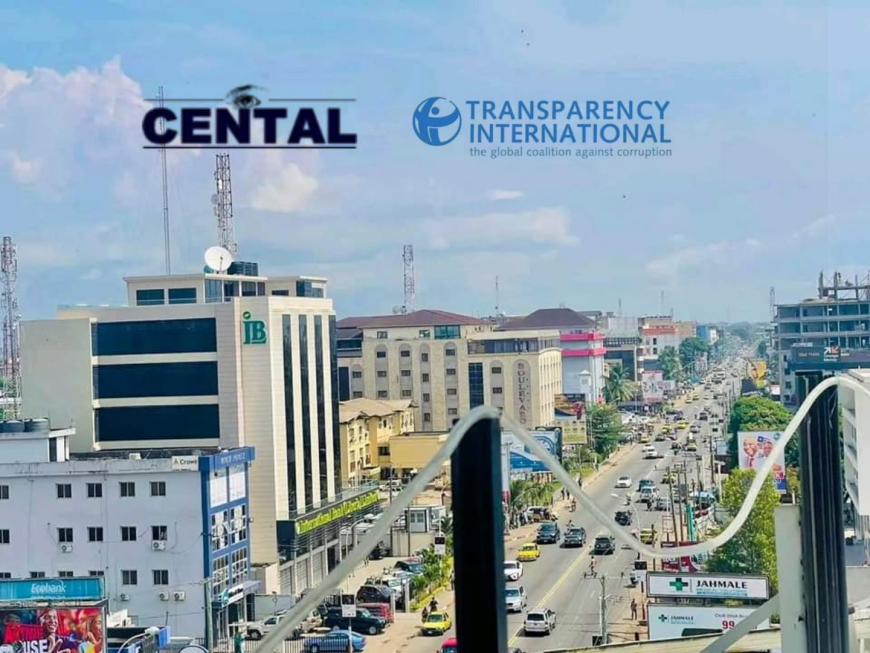Corruption in Liberia: Unresolved Issues Despite Promises to Change

Monrovia Liberia-Liberia's anti-corruption framework is facing a severe test under President Joseph Nyuma Boakai’s administration, with a growing gap between the president's promises and the actions—or inactions—of his government.
Liberia has taken some significant steps in its long-standing battle against corruption. The establishment of key anti-corruption institutions, including the Liberia Anti-Corruption Commission (LACC), the General Auditing Commission (GAC), and the Financial Intelligence Agency (FIA), alongside the passage of the Whistleblower Protection Act, Witness Protection Act, and Code of Conduct for public officials, signals a commitment to tackle pervasive corruption. But despite these efforts, corruption remains deeply entrenched, with Liberia’s score on Transparency International's 2023 Corruption Perception Index (CPI) falling to 25 out of 100, a sharp decline from 32 in 2018.
This decline is no surprise. The Center for Transparency and Accountability in Liberia (CENTAL) reports that over 90% of Liberians believe corruption in government is rampant and that the current administration is failing to address it effectively. The root of the problem is not a lack of laws or institutions, but rather a culture of impunity, fueled by weak political will and a lack of strong presidential leadership.
Since taking office in January 2024, President Boakai has promised to tackle corruption head-on, vowing to break away from the old ways of doing business in government. His administration has made notable moves, such as payroll and credential audits that led to the removal of "ghost names" from the government payroll, the establishment of the Office of the War and Economic Crimes Court, and several high-profile suspensions, including those of officials from the Liberia Immigration Service and the Liberia Refugee Repatriation and Resettlement Commission.
These steps have been seen by some observers as signs of genuine political will to combat corruption. However, a closer examination reveals troubling inconsistencies in how the president handles corruption cases, particularly those involving high-ranking officials or cases with broader implications.
For instance, the president has been slow to act on a number of critical issues that undermine his anti-corruption agenda. One such example is the failure to address widespread non-compliance with the asset declaration requirements mandated by the 2022 Code of Conduct. As of August 2024, the LACC reported that more than 70% of officials appointed by President Boakai have failed to declare their assets, incomes, and liabilities, as required by law. Despite this blatant disregard for transparency, President Boakai has not taken action to sanction or dismiss these officials, raising concerns about his commitment to enforcing accountability within his own administration.
The case of Mr. Abdullai Kamara, Acting Chair of the Liberia Telecommunications Authority (LTA), further illustrates the troubling pattern of selective action. An audit by the General Auditing Commission (GAC) found that Kamara, while serving as CEO of TAMMA Corporation, violated the Public Procurement and Concessions Commission (PPCC) Law by facilitating payments of over L$262 million and US$450,000 to companies without proper procurement documentation. Despite this damning report, no action has been taken against Kamara.
This lack of accountability is especially concerning given the swift action President Boakai took earlier this year, when he suspended the former LTA board following similar allegations. The failure to act on the GAC’s findings regarding Kamara has raised questions about the president's resolve to confront corruption, especially when it involves his appointees. As of now, Kamara continues to serve at the LTA, receiving full benefits and authority, despite the ongoing controversy surrounding his tenure.
Another example of selective accountability is the case of Dorr Cooper, the Commerce Inspector General. Cooper found himself at the center of a public scandal when he attempted to attend the University of Liberia’s graduation ceremony, despite not having completed the required coursework for graduation. After an internal investigation, UL authorities found Cooper guilty of fraud and recommended prosecution. However, despite the gravity of the situation, President Boakai has not taken any disciplinary action against Cooper. The failure to remove Cooper or pursue criminal charges sends a troubling message about the administration’s willingness to tackle corruption within its own ranks.
The issue of non-compliance with the Code of Conduct for public officials has also surfaced within the Unity Party (UP), the political party led by President Boakai. The Office of the Ombudsman has pressured several high-ranking UP officials, including the Managing Director of the Liberia Petroleum Refinery Company (LPRC) and the National Port Authority (NPA) Board Chair, to relinquish one of their government or party positions to comply with the law. Despite the Supreme Court's ruling upholding the Ombudsman’s decision, many of these officials have refused to comply. The president has yet to publicly demand that these officials adhere to the ruling, further fueling suspicions of selective enforcement and a lack of commitment to the rule of law.
Despite these setbacks, there is still hope for meaningful reform. President Boakai must take decisive action to show that his administration is serious about fighting corruption. This includes removing Mr. Abdullai Kamara from his post at the LTA, dismissing Dorr Cooper from the Ministry of Commerce, and holding accountable those who have violated the Code of Conduct by refusing to declare their assets. The president must also demonstrate stronger leadership in enforcing the Ombudsman’s decisions and supporting anti-corruption institutions with the resources they need to operate effectively.
For Liberia to break free from the cycle of corruption and impunity, President Boakai must deliver on his promises. Citizens, civil society, and the media must remain vigilant, demanding accountability and pushing for a transparent, fair, and effective government. Only then can Liberia begin to move beyond the entrenched corruption that continues to stymie its progress.
CENTAL’s call to action is clear: Liberia's fight against corruption is far from over, and it is up to President Boakai to ensure that anti-corruption efforts are not just talk, but real, impactful change.
What's Your Reaction?









































































